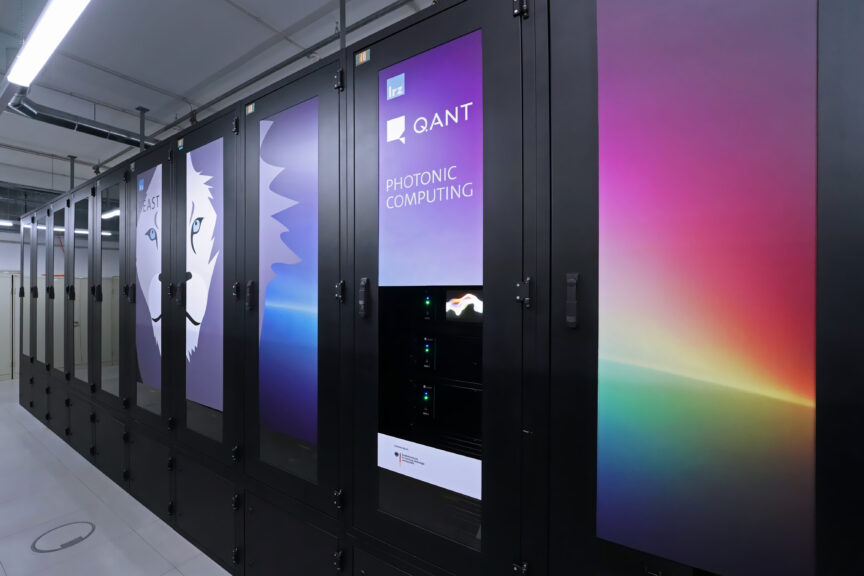At LRZ in Garching, a photonic computer for AI use cases was put into operation in an HPC environment for the first time worldwide. The Native Processing Server (NPS) from German start-up Q.ANT uses light instead of electrons for computing and therefore does not require energy-intensive cooling. Through parallel processing at different wavelengths, the technology promises high computing power combined with high energy-efficiency. The use of a novel material – thin film lithium niobate – enables high accuracy. The aim of the implementation is to research hybrid digital-analog computing architectures for future HPC-AI systems. In the first evaluation phase, several NPS units will be installed, suitable benchmarks developed, and real-world application scenarios tested, particularly in the areas of AI inference, computer vision, and physics simulation. Next-generation systems will follow later for in-depth evaluation.
The project is funded by the BMFTR.
Find further information in the LRZ News Post.

At LRZ in Garching, a photonic computer for AI use cases was put into operation in an HPC environment for the first time worldwide. The Native Processing Server (NPS) from German start-up Q.ANT uses light instead of electrons for computing and therefore does not require energy-intensive cooling. Through parallel processing at different wavelengths, the technology promises high computing power combined with high energy-efficiency. The use of a novel material – thin film lithium niobate – enables high accuracy. The aim of the implementation is to research hybrid digital-analog computing architectures for future HPC-AI systems. In the first evaluation phase, several NPS units will be installed, suitable benchmarks developed, and real-world application scenarios tested, particularly in the areas of AI inference, computer vision, and physics simulation. Next-generation systems will follow later for in-depth evaluation.
The project is funded by the BMFTR.
Find further information in the LRZ News Post.